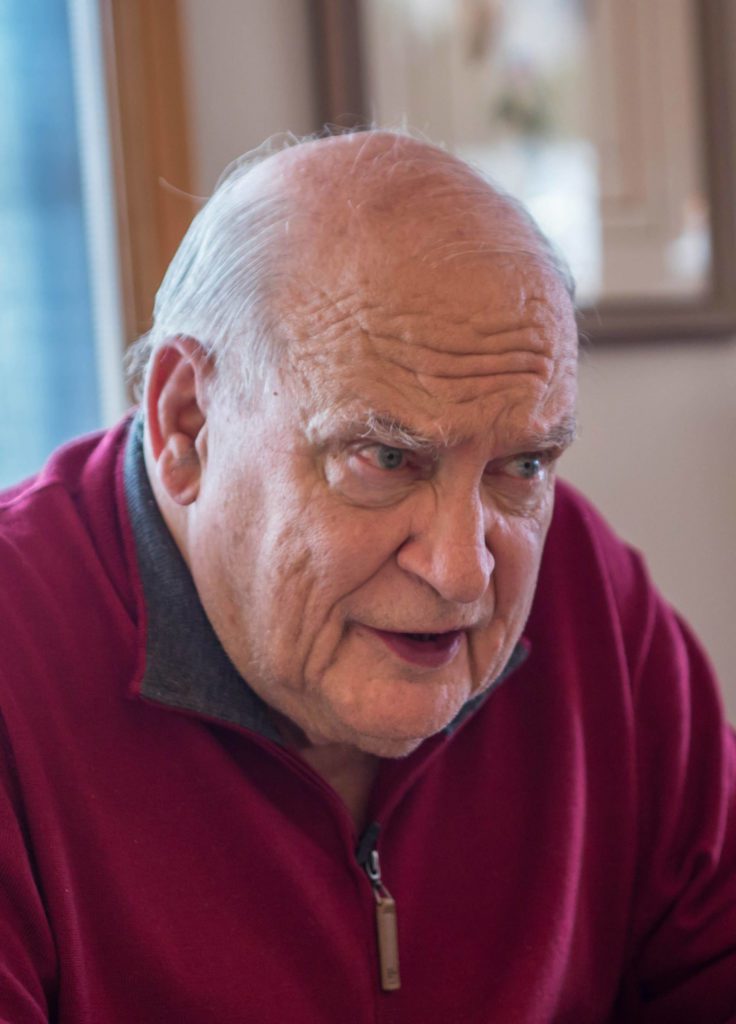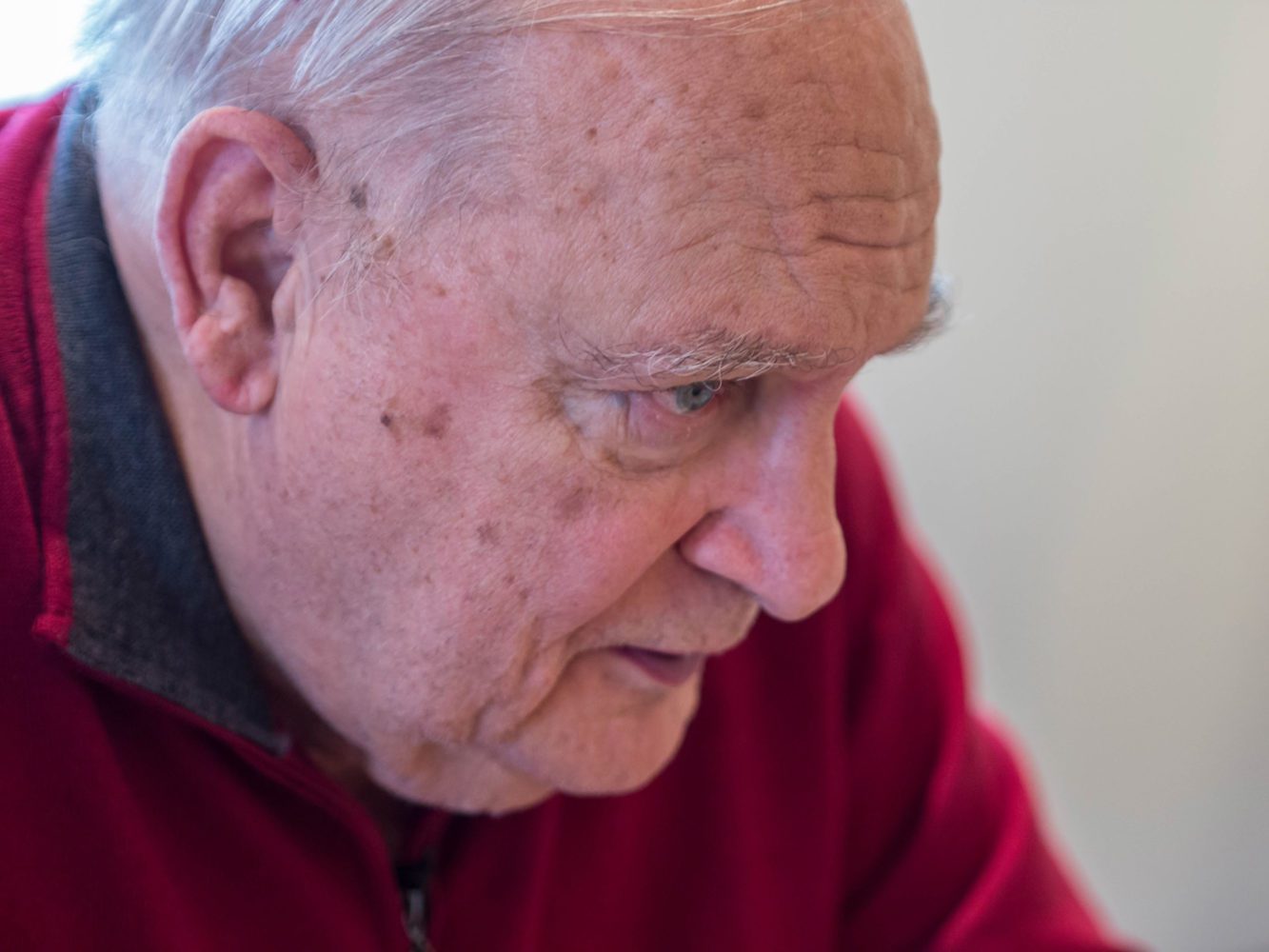“About four years ago I had open heart surgery. They replaced my aortic valve and did a double bypass. I recovered from that, but about two years ago I started feeling poorly and was getting progressively worse. I wasn’t sleeping. I was tired in the day and my wife noticed some psychological disturbances.”
“I went to my GP and he sent me to a series of specialists. There were two problems in that regard. The first was that there were lengthy waiting times to get to see the specialists. The second is that they didn’t speak to each other. There was no coordinated attack on my lack of wellbeing.”
“By total happenstance I developed a serious bacterial infection in my arm. I was admitted to hospital where they pumped me full of antibiotics. Seven days after admission I was ready to go home, and the doctor in charge (I never did know his name) was talking to me. I told him about my feeling of malaise and he said, ‘You know, there’s a thing called a geriatric assessment unit.’”
The doctor described how they have specialists in different fields see you. And they speak to each other in a holistic and timely matter. He asked if I was interested. I said absolutely. That sounded like what I had been looking for, for years.
“I was transferred there and the specialists assailed me with tests. Everything from cardiac to neurologic to a sleep specialist. Within three days they came back and said that I had advanced sleep apnea. They put me on a mask and two days later I felt, maybe not like a million bucks, but like a couple of hundred thousand anyway, compared to what I had felt like before.”

“On the last day the geriatrician came in and said he wanted to talk about my liver. He and I had hit it off really well. Because we had spoken a lot, he knew I was a drinking man. He said, ‘Michael, I’m afraid you’ve had your last drink.’ I said, ‘Come on, surely I can cut back.’
He said, ‘Listen, you are standing on the edge of a precipice. If you continue to drink you will fall off; I guarantee it. If you stop, it will be like stepping back from the precipice, and you may outlive me.’
“It was a very effective speech. When my wife came to take me home, I told her I had had my last drink. I knew she would be wildly pleased because she had been concerned about my alcohol intake. She laughed and said, ‘I’ll believe that when I see it.’ I haven’t had a drink to this day and that was a year and a half ago.”
“In my view, the assessment unit saved my life because of the approach of having specialists across fields who talk to each other. They gave me a picture of my whole being and what was wrong with it.”
Can you share an example of poor communication?
“I saw a neurologist and I remember asking my GP about six weeks after I had seen him if he had any results back. He said no, but that usually means there’s no problem. But he followed up and it turned out I had some sort of stenosis. So, that was a situation where the specialist hadn’t gotten back to my doctor. To be fair, he may have told me when I was there and I didn’t hear him. But there was a disconnect from my GP. And there certainly was no connection between the neurologist and my heart guy or between him and my diabetes guy.”
It seems a sad state of affairs if getting doctors to talk to each other is viewed as an unusual success.
“That’s right! And of course wait times are a problem. I wear a mask at night because of my sleep apnea. About three months ago I had a feeling that it wasn’t working as well because I wasn’t sleeping through the night as well as before. So I asked my GP to refer me to the sleep person. About a month later I hadn’t heard anything so I followed up and his assistant said, ‘Oh yeah, you’re on a list to go on the list.’ She said that they estimated that in three months they would be able to give me a date. Which they did about two weeks ago, and my appointment is in three months. And this is someone I have already seen. My cardiac person is much more responsive. I can get in to seem him in maybe a month.”

When you talk to people in health care, do you feel heard?
“I definitely had a rapport and felt heard by the head of the geriatric assessment unit. But that was the first time in a long time.”
My GP is very good in that I can see him tomorrow if I want. He is very accessible. But he is also a 15 minutes, in and out kind of guy. That’s his style of practice, probably because he’s busy. So I don’t really get overall advice from him, especially about my mental health. He is prompt in giving referrals to very good specialists. but then the wait begins.
“I think most of my friends who are my vintage would agree that the most difficult thing is to get a multifaceted examination. All we can get is a cardiac guy going into our heart and arterial issues, a diabetes guy going into what our medications should be, and an internist worrying about our liver. To make a silly analogy to an automobile repair shop – you can go in for a spark plug or you can ask for a full tune up. What we need is a full tune up, because obviously most of us have something wrong, and probably more than one thing.”


The comments section is closed.